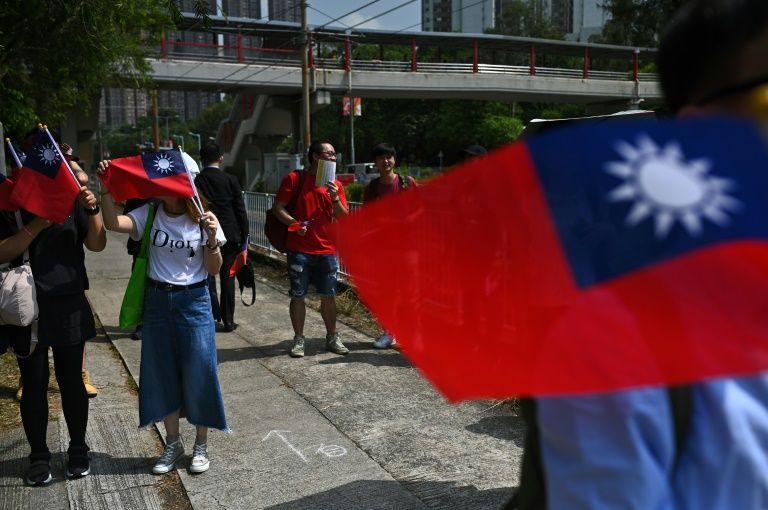Trump election loss robs Taiwan of a powerful, belligerent friend
Taipei (AFP) – Donald Trump’s departure from the White House will leave many US allies breathing easier, but his fiery anti-China rhetoric will be missed by many in Taiwan.
Over the last four years, Trump’s unpredictability and often confrontational attitude towards China over trade, the coronavirus and Hong Kong have earned him fans in self-ruled Taiwan, which has spent decades under threat of invasion from its authoritarian neighbour.
That danger has ramped up since the 2016 election of Tsai Ing-wen, who views Taiwan as a sovereign nation, not part of “one China”.
Her stance infuriates Beijing, which is now buzzing the island with an unprecedented number of fighter jets and surveillance aircraft.
A Joe Biden presidency promises a return to the kind of liberal internationalism that has been the mark of US foreign policy for decades — which some in Taiwan worry will mean going soft on China.
“I am disappointed that finally there was a president of a big country who strongly supports Taiwan, like Trump, but he lost the election,” said Shanna Lee, a 24-year-old office worker in Taipei.
“No other world leader dares to scold China and speak up for Taiwan as Trump does.”
Relations between Washington and Taipei warmed dramatically under the Republican, beginning soon after the votes were counted.
As president-elect in 2016 he received a call from Tsai to congratulate him on his win.
The call — of the kind routinely carried out by heads of government — infuriated Beijing, which rails at anything that appears to confer legitimacy on Taiwan as a sovereign state.
Over the next few years, Trump approved $18 billion of military sales to the island, including Harpoon anti-ship missiles and MQ-9 Reaper drones.
And in August, he dispatched the highest ranking US official to visit Taiwan since Washington recognised the communist government of China in 1979.
Ahead of the US election, a YouGov poll of 12 Asian countries and territories, found that only in Taiwan did a majority of respondents say they wanted Trump to win.
The sense in Taipei has been that Trump has raised the island’s profile at a time when Beijing continues to pick off its few remaining diplomatic allies, and to block Taiwan from bodies like the World Health Organization.
– ‘Pandora’s Box’ –
On social issues like gay rights, the progressive Tsai has much in common with the Democratic Party, and she was swift to congratulate Biden on Twitter.
But while the president elect said on the campaign trail he would expand ties with Taiwan, analysts say the international round of fence-mending that will likely define the early days of his presidency may see Washington dial back on China.
The odds of another congratulatory phone call between Tsai and Biden “are relatively low,” said Sung Wen-ti, a lecturer in Taiwan studies at the Australian National University.
The biggest concern for Taipei is that a Biden administration will distance itself from Taiwan to “secure Chinese cooperation on things like climate change and nuclear proliferation,” Michael Mazza, visiting fellow at the American Enterprise Institute, told AFP.
But others say there has been something of a bipartisan realignment when it comes to Taiwan and China, and that the days of Washington treading softly around Beijing may be over.
“Trump has already opened the Pandora’s box,” said Su Tzu-yun, analyst at the Institute for National Defense and Security Research in Taipei.
“The US has defined China as a major challenge in Asia and urged allies to work together to contain China… Biden has even called Chinese President Xi Jinping a thug.
“The US policy of containing China will not change.”
Disclaimer: Validity of the above story is for 7 Days from original date of publishing. Source: AFP.


